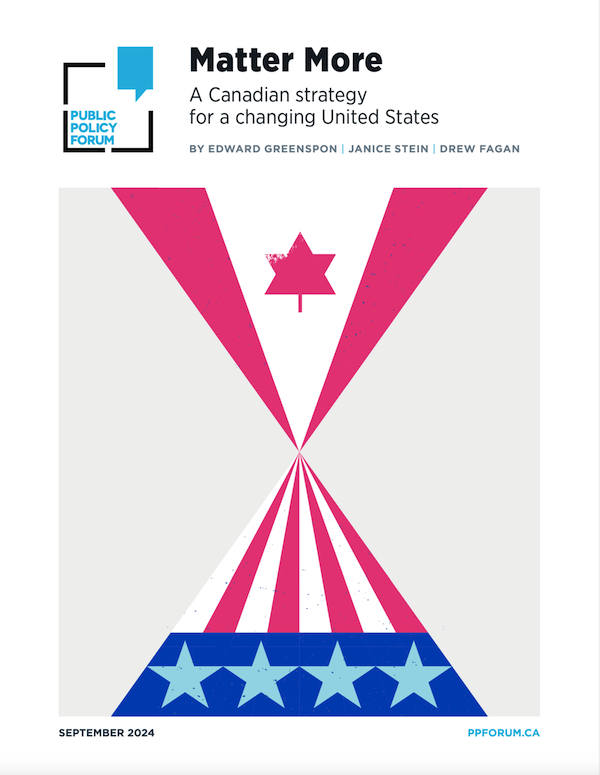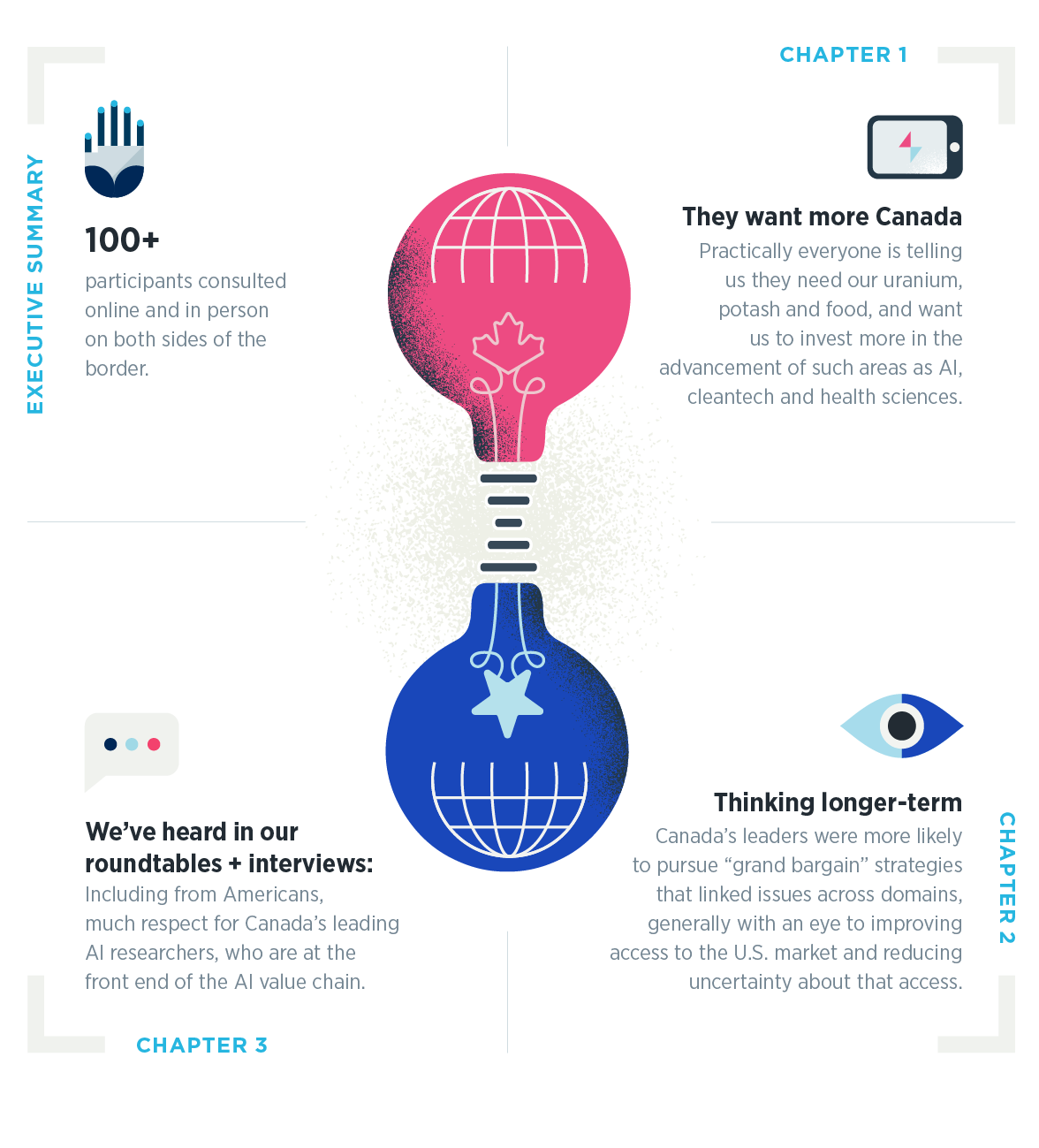
Matter More
A Canadian strategy for a changing United StatesDerek Burney, John de Chastelain, Raymond Chrétien, David MacNaughton and Michael Kergin — all former Canadian ambassadors to the United States — published an open letter endorsing a ‘Matter More’ strategy.
“We have different political and public service backgrounds,” they write. “But as former ambassadors devoted to the continued welfare of this extraordinary relationship, we agree with the project’s premise that Canada’s national interest is served by “mattering more” in fields as diverse as energy and natural resources, critical minerals, the environment, technology and defence. Canada and the United States are integral to one another’s economic and physical security. Canada needs a renewed strategy for the different circumstances of today.”

Executive Summary
A school of thought has arisen that Canada has never been more alone in the world. We respectfully disagree.
The world abounds with new challenges, to be sure, but also new opportunities that play to Canada’s strengths. To make the most of these opportunities, we need to align our national interests with those of our closest partners, especially the United States, and turn key advantages into strategic assets. As things stand, we see a Canada that is too often transactional and reactive.
The strategy to “Matter More” that is presented in this paper aims to reinforce Canada’s role both on the continent and in the global arena through a handful of high-impact sectoral initiatives that focus on economics and security — what we call Auto Pact 2.0s. These will enable Canada to better protect and project our national interests alongside our partners in a more divided and dangerous world and a more polarized United States.
The four key areas for policy action are:
Arctic security
Enhancing collaboration on Arctic defence by leveraging Canada’s strategic
geographical position and advanced surveillance technologies;
Critical minerals
Strengthening continental efforts in the production and processing of minerals that are central to energy and military applications, allowing Canada and the United States to reduce reliance on less-trusted countries, particularly China, and support our allies;
Energy and environment
Promoting joint independence and security through increased continental co-operation on the environment and energy, and sharing North America’s extra- ordinary energy strengths with our partners; and
Technology
Investing in advanced digital and life sciences technologies such as artificial intelligence and quantum computing with an emphasis on our value- adds in global supply chains.
A focus on these four areas will deepen co-ordination with the United States and broaden co-operation with other select global partners. But it will not happen if Canada does not also accelerate our building and procurement in the real time of geopolitical competition.

Project Co-Lead
![]()
Subscribe to PPF’s Canada-U.S. newsletter, a weekly look at how Canada can matter more to our most important trading partner.








